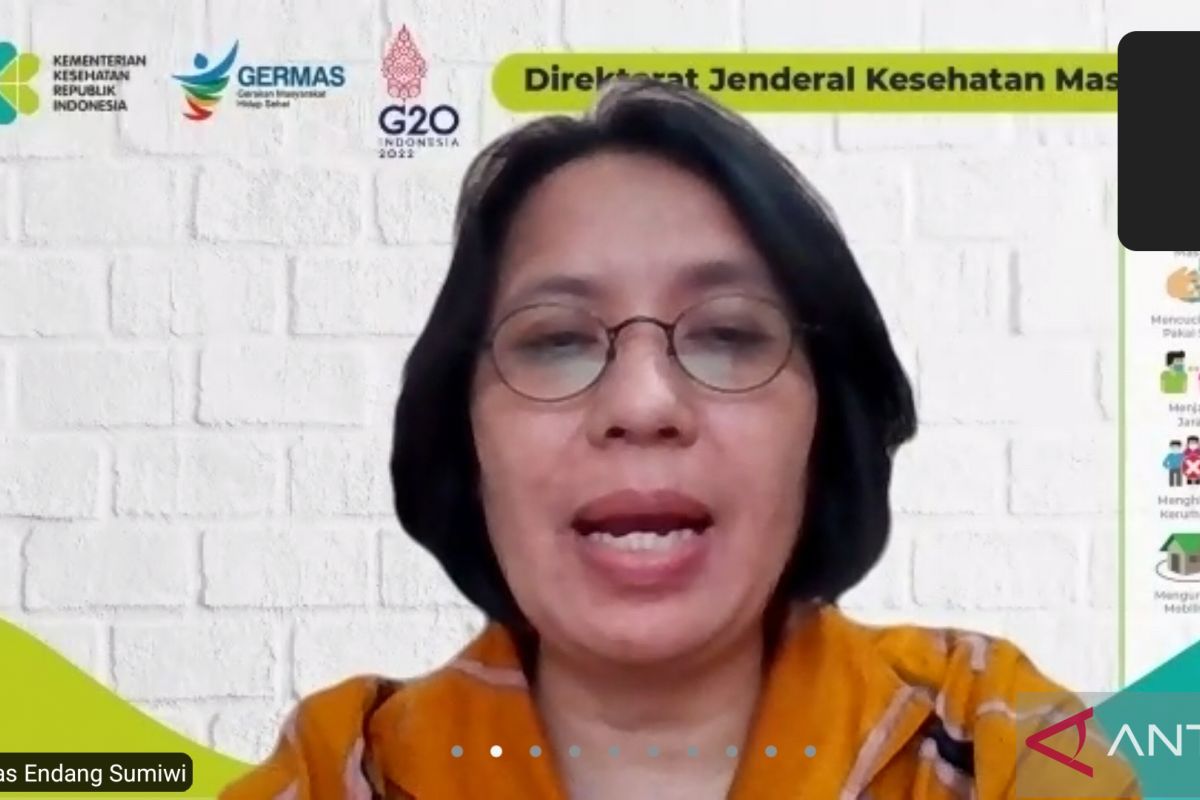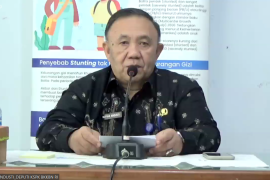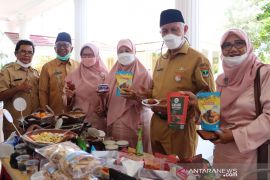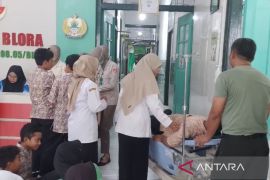This movement is targeting 1,028 schools to prevent stunting through the movement for young women to consume blood-added tablets (TTD)Jakarta (ANTARA) - The Indonesian Health Ministry held the National Nutrition Action Movement in order to suppress stunting cases in Indonesia by giving blood-booster tablets to all young women in the country.
"This movement is targeting 1,028 schools to prevent stunting through the movement for young women to consume blood-added tablets (TTD)," the ministry's Director General of Public Health Endang Sumiwi remarked during the media briefing of the National Nutrition Action Movement here, Monday.
The movement will begin on October 26, 2022, with the number of participants estimated to reach 1,395,000 people, of the total targeted number of young women receiving TTD in Indonesia totalling 12,349,190 people.
Sumiwi stated that stunting is a condition of failure to grow in toddlers due to the lack of nutritional intake, repeated infections, and the lack of nutritional stimulation.
Related news: BKKBN invites santri to accelerate stunting reduction in children
The government is targeting to achieve stunting rates in Indonesia in 2024 to be reduced to 14 percent, from 24 percent in 2021.
"President Joko Widodo said that this was not an easy target. However, with good management on the field, we were optimistic of reaching the target. The key is to manage the implementation on the field," she added.
Sumiwi remarked that the measure required a joint movement from all related parties.
Based on stunting data from the Ministry of Health, every baby born has a 23-percent risk of stunting, with a body length below 48 percent.
"The rest, or 77 percent, or almost 80 percent, occur after birth. We must conduct two interventions, specifically before and after birth," she remarked.
She later added that the movement was one of the government's intervention efforts to prevent stunting before birth.
Sumiwi noted that Presidential Regulation Number 72 of 2021 regulates provisions for young women to receive iron tablets since the nutritional condition of babies before being born should be improved.
Related news: Public awareness about stunting still low: BKKBN head
"Even for teenagers, the nutritional intake must be improved, as it will affect their adulthood and the pregnancy phase," she explained.
The 2018 Basic Health Research (Rikesdas) data compiled by the Directorate of Public Health of the Ministry of Health reported that cases of anemia, or blood deficiency, in young women were still quite high, around 20 percent of the total population.
"At the age of five to 14 years, cases of anemia were at 26.8 percent, while for ages 15 to 24 years, 32 percent of anemia cases were recorded," she noted.
In addition, the number of young women, who received iron tablets in the last 12 months, was recorded at around 76.2 percent, but only 1.4 percent of them took iron tablets as recommended.
"This movement is important to increase the consumption of iron tablets in young women while at the same time improving the behavior of consuming balanced nutrition," she said.
Related news: Jambi fights stunting through Integrated Family Planning Program
Related news: Need more research at regional level to address stunting: BKKBN
Translator: Andi Firdaus, Resinta S
Editor: Fardah Assegaf
Copyright © ANTARA 2022












